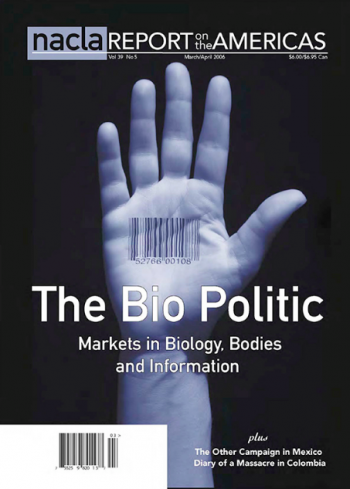
Economic historian Karl Polanyi has a name for things not originally produced for sale on the market: he called them “fictitious” commodities. In this category he included land and labor. Polanyi argued that at the dawn of the Industrial Revolution, when these factors of production became organized as commodities to be bought and sold on the market, human history entered a radically new chapter in which pride of place was given to the market as the basis for the whole organization of society. “The Great Transformation,” as he called it, meant “no less than the running of society as an adjunct to the market.”
Today, the free-market ethos pinpointed by Polanyi continues its creep into the fundamental elements of life—or what the Greeks called bios, whether in the form of people, body parts, biological and genetic matter or information thereof—generating a new catalogue of fictitious commodities. In our brave new world, not only is human activity (labor) available on the market, human bodies and body parts, too, are “things” subject to exchange. And nature—or “land” in Polanyi’s designation—is also up for sale. But today’s coveted “real estate” is the biological matter of the natural world and its genetic components. These natural resources can be accumulated and hoarded as intellectual property patents and other forms of privileged information. In fact, with the technological leaps and bounds of recent decades, information itself is not only being controlled for profit, it is also being leveraged to preserve discriminatory social orders. This Report traces some of these disturbing trends.
